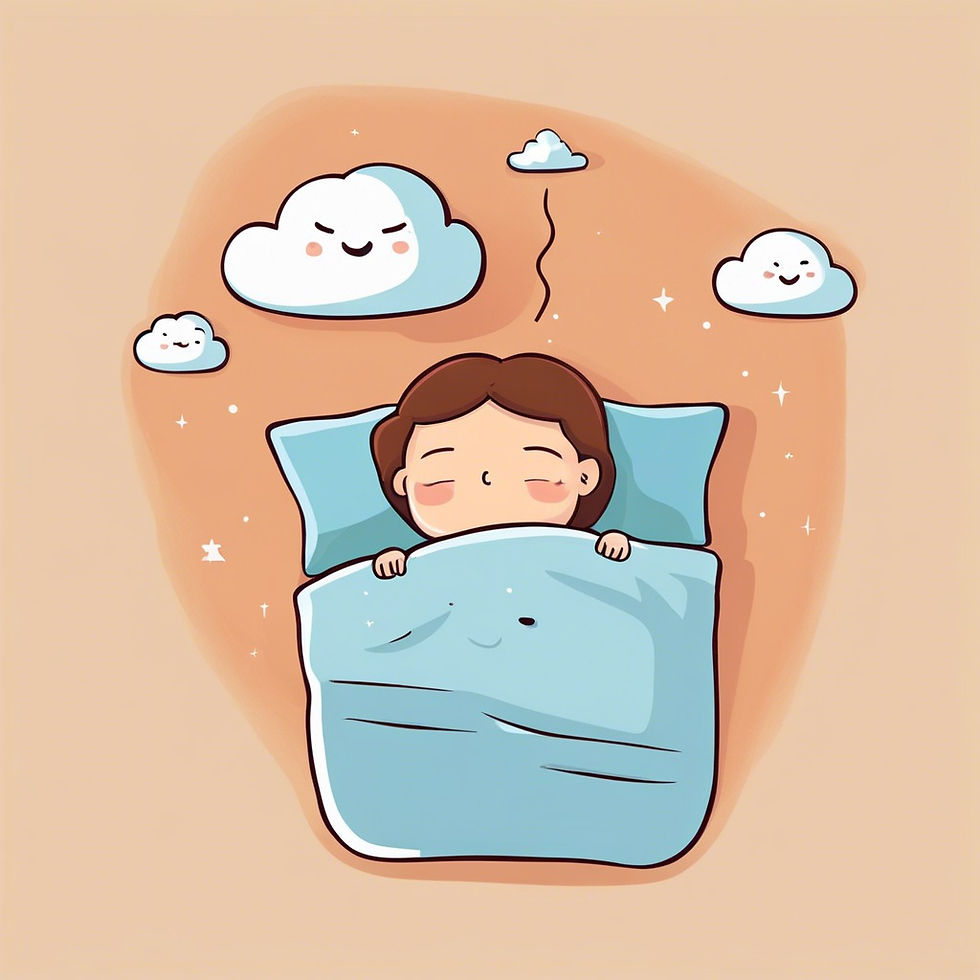Sleep
- William Nugent
- Mar 15, 2024
- 3 min read

Let me drop some disclaimers first: this blog is more for entertainment than dispensing concrete medical information, people are variable and need to choose which regimen/program/lifestyle fits them, and welcome to the internet.
Sleep is one of those weird things that we’re all intimately familiar with, often obsess over, and don’t know enough about. Researchers are great at characterizing sleep’s effects on the body, but when you try to dig deeper the answers break philosophical pretty quick.
Let’s start with the facts.
Why do we sleep? It provides a regenerative function, a dry-dock for metabolically active tissues. Damage is repaired and neurological clutter is given a chance to get organized and filed away. It’s also an energy-saving mode for those hours when we are evolutionarily supposed to be unproductive.
What gets us to sleep? I.e., is there a biological timer, is it a habit, or is it environmental? The answer is yes in that multiple factors feed into what makes us tired and finally puts us down. Environmental in a sense that darkness increases neurological melatonin production, which leads to sleep. People try to juice this through dietary supplementation with mixed results (I think most find that it helps). So that’s an environmental-physiological pathway. Next, we accumulate damage or suffer energy depletion which drives the body into a pro-sleep state. “Tire yourself out.” Finally, if we usually go to bed at 8, we’re going to be tired when 8 o’clock rolls around. The body is nothing if not habitual. The caveat, of course, is that bigger stimuli can often override these processes.
Why can’t I fall asleep? Because a bigger stimulus/input is overriding your normal drive to sleep.
How long can I go without sleep? It depends on what you need to do after not sleeping. Not sleeping wears you down. Generally, you can skip a night of sleep and still expect a reasonable amount of functionality. Good luck staying awake, though. After that the acute effects are mental. Excessive wakefulness initially slows down cognitive function, makes it hard to think, react, focus. Then the hallucinations and dissociation from reality start. Ultimately, cognitive function will deteriorate to the point where the body has trouble maintaining autonomic functions. Also, it’s not just in your head. Your body degrades without proper sleep, it just happens slower than cognition.
Wait, what if I can’t sleep? So, here’s what I think, and I could be wrong. Your body will eventually override whatever’s keeping you awake (unless its some serious Gitmo stuff) and put you down. If it can’t put you down, it will sneak in what are called Microsleeps - seconds of sleep designed to slow down neural degradation. Ultimately, I believe you will reach a balance between microsleeps/nod-offs and wakefulness that won’t be fun, but will keep you alive. Then, hopefully, you get a solid night’s sleep and wake up refreshed.
The pivotal question: What’s the best way to ensure a good night’s sleep?
There’s so much advice out there. If you’re reading mine, you’ve read it all. You’re an expert. There are tips, tricks, supplements and avoidances that all build toward that moment when your head hits the pillow. Will it stay down for 8 hours? Or will you toss, turn, have a dream then wakeup forever at 3:00 AM? It’s all good stuff, but here’s my take.
If nothing’s working for you, it’s due to data overload.
If you overthink it, sleeping becomes an active source of study and stress. If you are constantly counting hours, dreams, looking at your watch to see how much delta waves you got … you are turning downtime into uptime. I’m not saying you shouldn’t follow the advice that works: limit caffeine, no blue light retinal scans before bed, etc. I’m saying don’t worry about it. Don’t confuse information you’ve read with how your body is working. So you drank a cup of coffee right before bed and wont get to sleep for another 4 hours. Just ride it out. When you get tired, go down. When the alarm goes off, get up and pull another cup or start hammering pushups until your brain is topped off with blood. You’ll be fine. Tired, but you can handle tired. And tired just means there’s a really good chance there’s a good nights sleep in your future.
I mean, unless you overthink it.




Comments